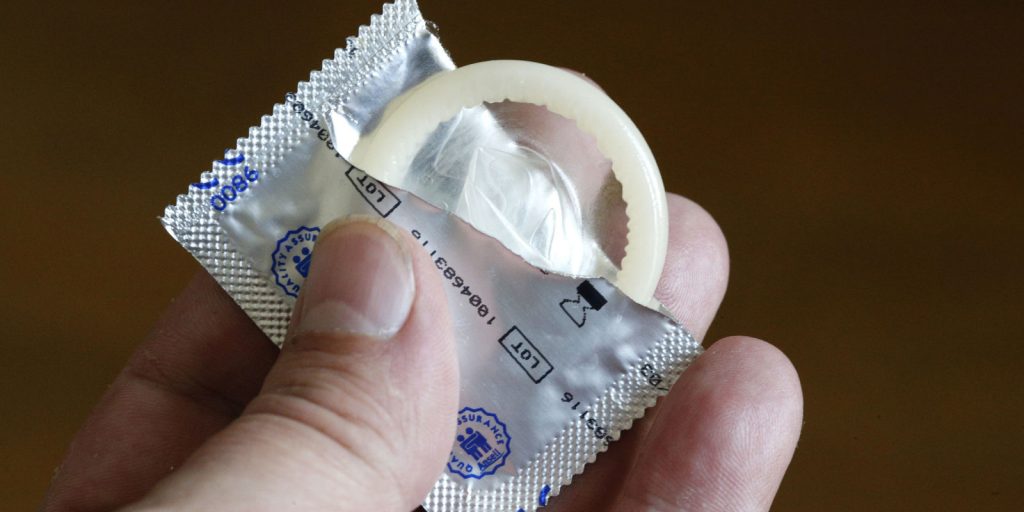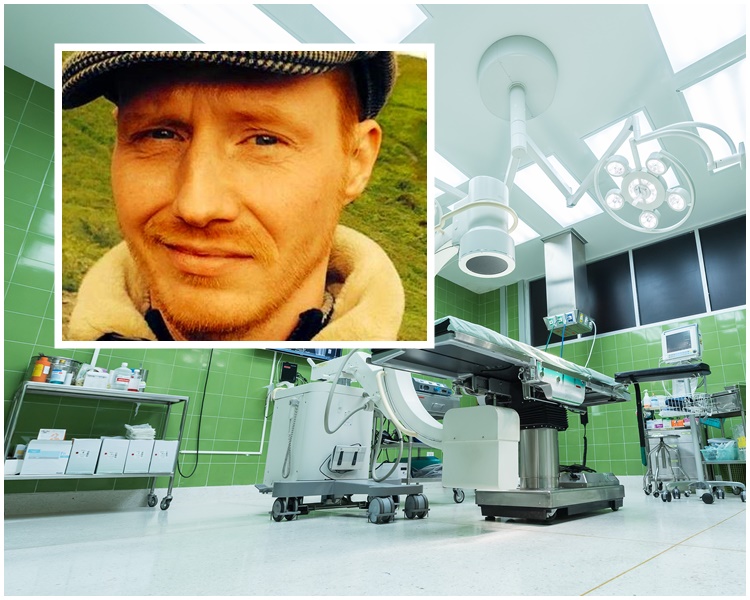When Ársæll Hjálmarsson went to see a doctor because of problems with his vision, he never imagined he would be diagnosed with one of the most severe cases of syphilis in recent years in Iceland.

Syphilis has been on the rise in Iceland since 2014. And, with cases like Ársæll’s, some health professionals are sounding the alarm about a syphilis outbreak in the country.
But Ársæll is taking his diagnosis in stride. He’s sharing his experiences with syphilis to educate others in Iceland about the disease and to draw attention to gaps in Iceland’s sexual health framework.
“Rcently I asked the doctor if it was true that I’m one of the worst cases that they’ve seen, and she said this is one of the worst cases in a while because they’ve never had someone come in for an eye check and find out that it’s in their nervous system right away. Whether correct or not, it’s one of the most severe cases,” Ársæll tells me when I ask him about it and adds: “She said it’s rare that the syphilis reaches the central nervous system (neurosyphilis). People usually get treated before that happens. And she also thought that it was quite weird that I didn’t have any symptoms, except the headache.”
But what prompted him to go see a doctor in the first place? “After having headaches and the floaters in my vision for three or four weeks. Something I just thought was migraines. So I didn’t think it could be anything worse than that. But then I started to feel more pressure in my eyes, I became more light-sensitive, and I did not understand why the migraine was so stubborn. The pressure became so much that I couldn’t see and I had a black cloud over my right eye, so basically I could only see 20 per cent with that eye.
“The worst thing that I thought I could ever get was chlamydia. … I didn’t even know syphilis was a thing that was rising … There’s an outbreak, apparently.”
That’s when I went to the ER in (town) Keflavik to get it checked, and they couldn’t do anything. They just looked at me and said: ‘We don’t know what it is. Here, have painkillers and we’ll send you to the eye specialist at (hospital) Landspítalinn in Reykjavík’.”
So Ársæll went to an eye specialist in Reykjavík who came to the conclusion that things were not quite normal. Another specialist therefor took a look at him and he was the one who asked whether it might be possible that Ársæll had STIs? “And I said: ‘I don’t know, I haven’t been checked in a while’,” Ársæll recalls. “They said they thought it might be syphilis, and that I’d have to have a spinal fluid test done at (hospital) Borgarspítalinn. They said from there I would be hospitalized for ten days or up to fourteen days if they found out the syphilis had entered my central nervous system. Thirty minutes later they started pumping my veins with antibiotics.”
Is it normal for symptoms to take so long to appear and for it to affect your eyesight? “It’s a stage two and stage three symptom. And when it reaches your central nervous system that’s a stage three or four. And that’s really serious, because it could affect you later in life.

Thankfully my eyes are getting better and getting back to where they were, but still there may be leftovers of the floaters. And there can be an effect on your mental health as well. It can turn you mentally ill for the long-term. That’s why they took really seriously the fact that it was in my eyes and later in my central nervous system.”
What went through your mind when you found out you had neurosyphilis?
“The first thing I thought of was: I need to take responsibility for what I did. Now I have to contact everyone I’ve had sex with for the past twelve months, at least. But I went further, to eighteen months or two years, because I did not know when I got syphilis. I had not been checked since 2014.”
Do you have any idea how you got infected?
“Well, I’m allergic to latex. And finding latex-free condoms in Iceland is like finding a needle in a haystack. Why should I be jumping around every pharmacy looking for latex-free condoms? That’s just absurd. They should be available everywhere they have condoms.”
Why is it important for you to be so open about your experiences? “I don’t want anyone else to go through what I’m going through. That’s basically the reason why. Young gays are careless, and they think that if someone says they’re on PrEP or that they got checked a month ago that it’s okay to have unprotected sex. Which it’s not, because PrEP is only for HIV and not other diseases. And I knew that, but still I had unprotected sex a lot.
“They say syphilis and gonorrhea are here to stay, because people are not being responsible in their sex lives. They’re … not protected when they have sex.”
The worst thing that I thought I could ever get was chlamydia. I never thought I would get syphilis. I didn’t even know syphilis was a thing that was rising and becoming such a big deal in Iceland. There’s an outbreak, apparently.”
Why do you think there’s an outbreak of syphilis right now? “They say syphilis and gonorrhea are here to stay, because people are not being responsible in their sex lives. They’re not getting checked regularly, they’re not protected when they have sex. Also, you can get syphilis from other ways than just having penetrative sex. You can get it from blowjobs, if you touch the person’s hives or sores.”
And you think there is not enough awareness about syphilis?

“I’d like to see more posters or more advertisements saying ‘practice safe sex.’ I would like sex education in schools to be better. There needs to be something, especially in the high schools where young people who are getting more sexually active need to be aware of the danger of skipping the condom.”
Asked what his plans are after his treatment, Ársæll says that he’s going to organize a sex health/PrEP talk/Q&A drag show where he will tell his story and get other people to share their stories as well. “I’d like to get one of the disease specialists to come and talk about the diseases, how you get them and how it spreads. And then I want to have a petition to have latex-free condoms available everywhere they sell condoms in Iceland, that the price of condoms should be lowered, and that PrEP should be on the market sooner than they are planning.”
What do symptoms look like?
Primary stage – Painless sores around the genitals and/or mouth
Secondary stage – Red or brown rashes on your hands and/or feet
Tertiary stage – Paralysis, numbness, blindness, heart disease (usually only after having untreated syphilis for several years)
How do you get syphilis?
Through oral, anal or vaginal sex with someone who has syphilis
If you are pregnant, you can pass on syphilis to your baby
You can pass on syphilis even if you don’t have any symptoms
How is syphilis treated?
With penicillin, an antibiotic
It is completely curable with treatment
However, if left untreated there can be lasting impacts
(Information from the Centre for Disease Control and Prevention www.cdc.gov/std/syphilis)


